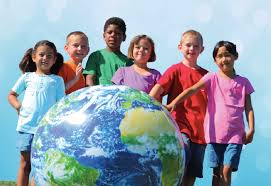The Importance of Considering Future Generations
In today’s fast-paced world, it is crucial to look beyond our immediate needs and consider the impact of our actions on future generations. The choices we make today have far-reaching consequences that can shape the world our children and grandchildren will inherit.
One of the key reasons why we should think about future generations is sustainability. By preserving natural resources, reducing waste, and mitigating environmental damage, we can ensure that there will be enough for those who come after us. Sustainable practices not only benefit the environment but also contribute to a more stable and equitable society.
Another important aspect of considering future generations is social responsibility. The decisions we make now regarding social justice, education, healthcare, and economic policies will impact the quality of life for future members of society. By advocating for fairness and equality today, we pave the way for a better tomorrow.
Furthermore, thinking about future generations encourages long-term planning and innovation. It challenges us to develop solutions that are not just quick fixes but sustainable strategies that can stand the test of time. By investing in research, education, and technology today, we equip future generations with the tools they need to address emerging challenges.
Ultimately, by considering future generations in our decision-making processes, we demonstrate a sense of stewardship and care for the world we share. We have a responsibility to leave behind a planet that is healthy, prosperous, and inclusive for all who will inhabit it in the years to come.
Safeguarding Tomorrow: Addressing Key Questions for Future Generations
- Why is it important to consider future generations?
- How can we ensure a sustainable future for upcoming generations?
- What impact do current actions have on the lives of future generations?
- What role does education play in preparing future generations for challenges ahead?
- In what ways can individuals and governments work together to secure a better future for the next generation?
Why is it important to consider future generations?
Considering future generations is of paramount importance as it ensures the sustainability and well-being of our planet for years to come. By taking into account the needs and challenges that future generations may face, we can make informed decisions today that preserve resources, protect the environment, and promote social equity. Through forward-thinking actions and policies, we can create a legacy that fosters a thriving and resilient world for our descendants, demonstrating a sense of responsibility and care for the future beyond our own lifetimes.
How can we ensure a sustainable future for upcoming generations?
Ensuring a sustainable future for upcoming generations requires a collective effort and a long-term perspective. It involves adopting environmentally-friendly practices, such as reducing carbon emissions, conserving natural resources, and promoting renewable energy sources. Education plays a crucial role in raising awareness about sustainability issues and empowering individuals to make informed choices. Collaboration between governments, businesses, and communities is essential to implement policies and initiatives that prioritise environmental conservation and social responsibility. By investing in innovation, fostering a culture of sustainability, and prioritising the well-being of both people and the planet, we can pave the way for a brighter future for generations to come.
What impact do current actions have on the lives of future generations?
The impact of current actions on the lives of future generations is profound and far-reaching. Every decision we make today, whether it relates to environmental conservation, social policies, or technological advancements, shapes the world that our descendants will inherit. Neglecting sustainable practices can lead to resource depletion, environmental degradation, and climate change that will significantly affect the quality of life for future generations. Conversely, prioritising long-term thinking and responsible decision-making can create a legacy of prosperity, equity, and resilience for those who come after us. It is crucial to consider the implications of our actions on future generations and strive to leave a positive impact that ensures a better world for all.
What role does education play in preparing future generations for challenges ahead?
Education plays a pivotal role in preparing future generations for the challenges that lie ahead. By providing young people with knowledge, skills, and critical thinking abilities, education equips them to navigate complex issues, adapt to changing environments, and make informed decisions. Through education, individuals can develop a deep understanding of global issues such as sustainability, social justice, and technological advancements, empowering them to contribute positively to society and shape a better future for themselves and generations to come.
In what ways can individuals and governments work together to secure a better future for the next generation?
When considering how individuals and governments can collaborate to secure a better future for the next generation, it is essential to recognise the power of collective action. Individuals can play a significant role by adopting sustainable practices in their daily lives, such as reducing waste, conserving energy, and supporting eco-friendly initiatives. Governments, on the other hand, have the ability to implement policies that promote environmental protection, social welfare, and economic stability. By fostering open communication, mutual understanding, and shared goals, individuals and governments can work together to create a more sustainable and prosperous world for future generations to inherit.

